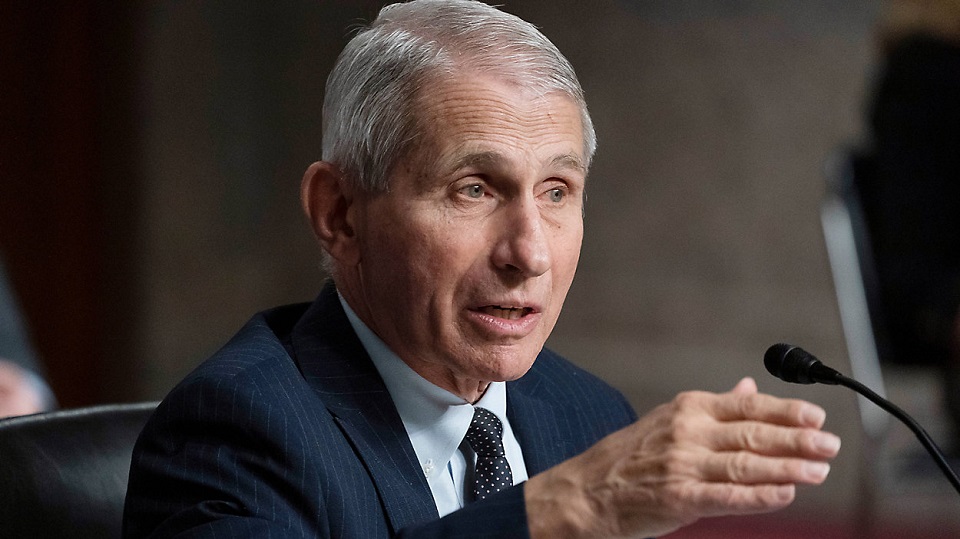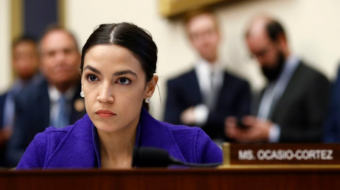
SHREVEPORT, La.—The recent ruling by Terry Doughty, the Trump-named Chief Judge for the U.S. District Court for Western Louisiana, outlaws a Biden administration attempt to “jawbone”—not censor—social media postings, particularly those that lie.
And it throws the whole question of who or what can regulate the Internet back into the lap of a dysfunctional Congress, just after the U.S. Supreme Court ducked the issue, too.
In his 155-page decision, Doughty agreed with right-wing Republican Attorneys General Jeff Bailey of Missouri and Jeff Landry of Louisiana, that even contact between Biden administration officials and social media companies over what the administration called fake coronavirus claims on the web violated the companies’ constitutional right of free speech.
Doughty issued a nationwide order barring federal officials, from the White House, the Departments of Health and Human Services and Homeland Security, the FBI, the Centers for Disease Control, and elsewhere, from calling or e-mailing or even talking about, in White House press conferences, disinformation on the web.
That means those officials can’t contact “social-media companies, including Facebook/Meta, Twitter, YouTube/Google, WhatsApp, Instagram, WeChat, TikTok, Sina Weibo, QQ, Telegram, Snapchat, Kuaishou, Qzone, Pinterest, Reddit, LinkedIn, Quora, Discord, Twitch, Tumblr, Mastodon, and the like,” about controversial statements on the web, the judge wrote.
The feds can’t be “urging, encouraging, pressuring, or inducing in any manner the removal, deletion, suppression, or reduction of content containing protected free speech posted on social media platforms or specifically flagging content or posts on social media platforms and/or forwarding such to social-media companies urging, encouraging, pressuring, or inducing in any manner for removal, deletion, suppression, or reduction of content containing protected free speech,” Doughty added.
Doughty’s decision involves 1st Amendment issues which the right-wing dominated Supreme Court tried to handle earlier this year, but it also is another instance of right-wing “judge-shopping.”
Both right-wing Republicans and corporate interests head for federal courts in rural areas of deep red states where they know from past expertise they’ll get favorable rulings with nationwide injunctions. A Bloomberg analysis found 239 pro-right-wing decisions, though not all stopped the government in its tracks, in Doughty’s Shreveport-based court alone in the last three years.
But it also reinforces one key point about those same social media: Unlike newspapers, news services, and news websites such as People’s World, social media either don’t have editors at all or—if they’re controlled by an Elon Musk or similar ideologues—order staffers to approve certain postings from the right and disapprove or downgrade others, using their algorithms.
Just as one example of the problem with social media, former Rep. Robert F. Kennedy Jr., now a long-shot Democratic primary challenger to Biden—again accused the Centers for Disease Control of lying about the coronavirus threat, in a twitter posting on June 29.
“Recently revealed emails show the CDC was LYING when they said the vaccines stop infection. It wasn’t that the science changed. They knew, and they lied,” RFK Jr., posted, without evidence. Other right wingers who refuse to believe the pandemic occurred—and that it’s still a threat—added their own allegations.
That’s the type of social media misinformation the Biden officials were trying to stop by “jawboning” the companies. But even jawboning is censorship which violates the Constitution’s 1st Amendment free-speech guarantees, Doughty said. Twitter gave the White House a special portal to flag dubious postings. Facebook’s emails discussed its ‘partnership’ with administration officials, he noted.
The Supreme Court took its own shot at the disinformation on the web in May when it upheld Section 230 of the 1996 Communications Decency Act. That section “fostered the internet as we know it by allowing digital platforms to act less like old-school publishers and more like free-for-all marketplaces for ideas,” columnist Bena Venkatamaran wrote in the Washington Post after the justices’ rulings.
“But Section 230’s limits have also become apparent as algorithms have amplified the worst ideas, including some that lead to real-world violence,” Venkatamaran noted. The court ducked the issue, leaving it in the hands of Congress—which has also stalled in wrestling with the net.
Of course, meanwhile, the Radical Right has been screaming for years that social media platforms are censoring them—a trend that is changing now that Elon Musk owns a platform. The latest congressional attempts, the Big-Tech Accountability Act, would actually set them free, even more than Doughty’s decision does.
The measure, by scandal-scarred Rep. George Santos, R-N.Y., has gone nowhere since he introduced it in April. He would bar a social media service from de-platforming “a citizen of the United States…on the basis of the social, political, or religious status of such citizen even if the citizen through the provider clearly violates a policy of the company relating to
- (I) hate speech,
- (II) sexual harassment
- (III), discrimination on the basis of sex, religion, sexual orientation, or
- (IV) making violent threats, violent speech, or violent declarations.”
Deplatforming, Santos adds, includes social media efforts to “permanently suspend” users’ accounts—which, of course, is what some did, temporarily, to Donald Trump after he encouraged and virtually ordered the January 2021 invasion, insurrection, and attempted coup d’etat at the U.S. Capitol.
Social media firms violating Santos’s plan would face $5,000 daily fines.
We hope you appreciated this article. At People’s World, we believe news and information should be free and accessible to all, but we need your help. Our journalism is free of corporate influence and paywalls because we are totally reader-supported. Only you, our readers and supporters, make this possible. If you enjoy reading People’s World and the stories we bring you, please support our work by donating or becoming a monthly sustainer today. Thank you!












Comments